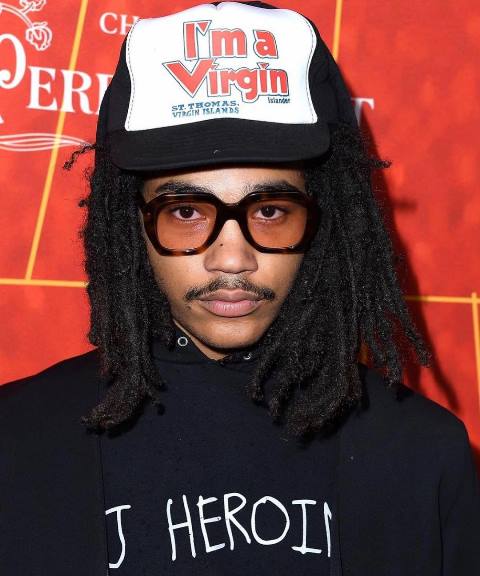A PR firm’s lawsuit against an Instagram influencer may alter influencer marketing practices.
Snap’s public relations agency PR Consulting (PRC) filled a lawsuit against Grown-ish actor Luka Sabbat for failing to promote Snapchat Spectacles on Instagram as promised. The high-tech sunglasses enable users to take and view photos and videos. (Snap is the publically traded company that owns the Snapchat messaging/social media app.)
The actor has 1.4 million Instagram followers. His main claim to fame is his reported dalliances with reality TV star Kourtney Kardashian.

Luca Sabbat. Image source: Luca Sabbat via Twitter
The suit alleges that Sabbat was supposed to post an Instagram feed post and three Instagram stories of himself wearing Snap Spectacles at New York, Milan or Paris fashion weeks. He agreed to send Instagram posts to PRC for approval before publishing them, and submit analytics to the firm within 24 hours of posting. He also agreed to be photographed in public wearing the Snapchat Spectacles during Milan or Paris Fashion Week.
The PR firm agreed to pay the actor $65,000 for that work and paid $45,000 of that amount upfront. But he only posted one Instagram feed post and one story post and didn’t submit posts for approval, provide timely analytics, or appear in public as agreed. PRC says Sabbat knew he violated the agreement but refused to return the $45,000. It demands that money back plus another $45,000 in damages.
Sign on the Dotted Line
PR and marketing commentators say the well-publicized case may force influencers to become more accountable, especially if PRC wins the suit. PR and marketing outfits may double down on contracts with influencers. More may avoid upfront payments and demand prorated payments, paying influencers only when they complete the contract terms.
Some PR and social media observers questioned PRC’s decision to launch the legal confrontation. The legal spectacle gives the Snapchat Spectacles a public relations black eye, they say. The publicity may focus attention on the lackluster sales of Snapchat Spectacles. Snap may appear desperate by promoting its product on Instagram, its main competitor, says TechCruch Editor Josh Constine, who estimates that the controversy will cost Snap $90,000 in reputational damage. Others believe publicity generated by the lawsuit will attract potential buyers of the sunglasses.
The controversy may hinder influencer marketing in general. Many brands believe influencer marketing provides authentic connections with audiences. Brands design their campaigns to feel natural, but more people may realize that celebrities get paid to show products.
How Often Do Influencers Break Deals?
While the Sabbat case is the most highly publicized incident of an influencer deal gone wrong, celebrities and other influencers frequently renege on contracts, according to The Fashion Law. In 2016, Perfumania Holdings filed an $18 million lawsuit against Jay Z for allegedly failing to promote his “Gold” fragrance. The Kardashians were hit with a $180 million lawsuit for allegedly failing to market and promote beauty products as they promised.
With contract breaches commonplace, savvy brands already prorate payments, The Fashion Law notes. That allows them to avoid paying for work not done and messy and costly lawsuits.
Some celebrities and influencers break contract terms by using a competitor’s products. Samsung recently sued its Russian brand ambassador for $1.6 million after she was caught using an iPhone X on TV, violating the terms of her contract, reports TechSpot. And Wonder Woman star and Huawei brand ambassador Gal Gadot praised the android phone on Twitter – with an iPhone.
Bottom Line: A PR firm’s lawsuit against an influencer highlights the perils of influencer marketing. More PR and marketing teams may seek strict contracts that prorate payments, a tactic that can ensure influencers fulfill their promotional promises and help avoid costly lawsuits and reputation-damaging publicity.
William J. Comcowich founded and served as CEO of CyberAlert LLC, the predecessor of Glean.info. He is currently serving as Interim CEO and member of the Board of Directors. Glean.info provides customized media monitoring, media measurement and analytics solutions across all types of traditional and social media.




